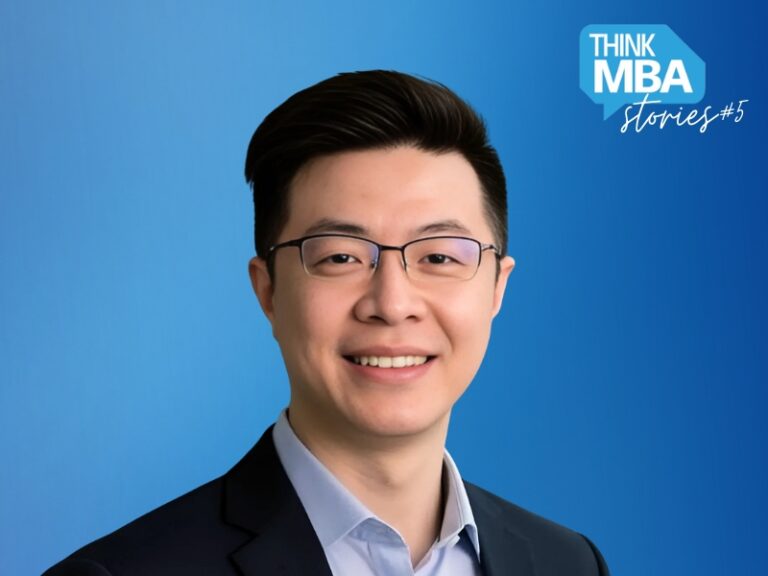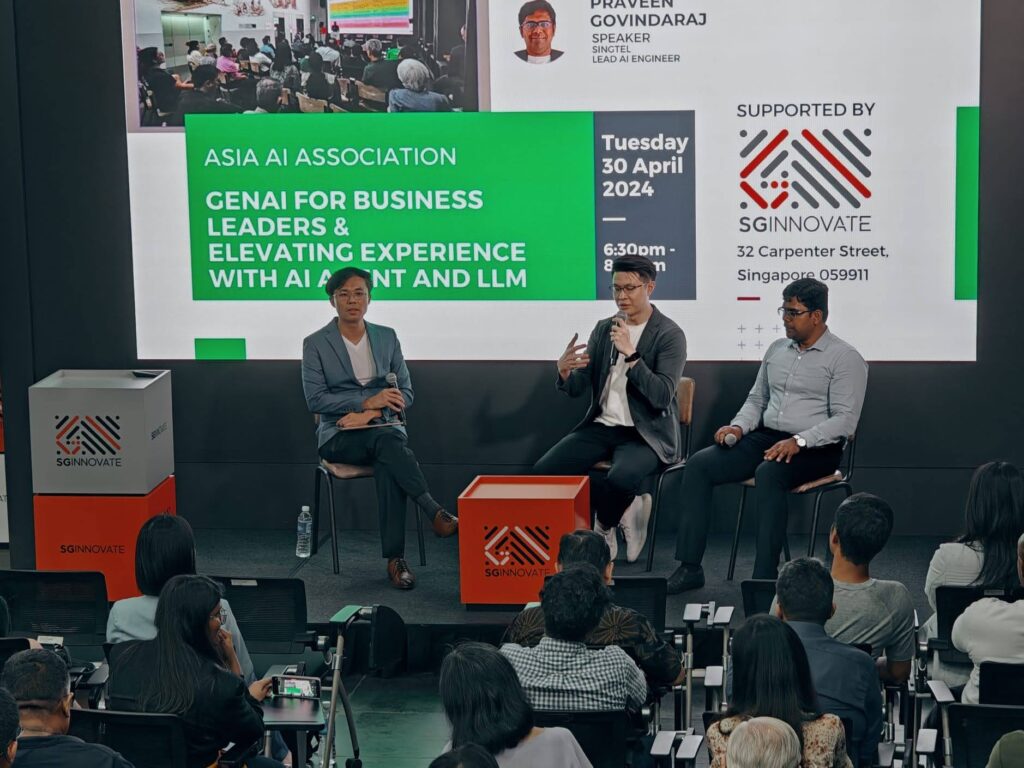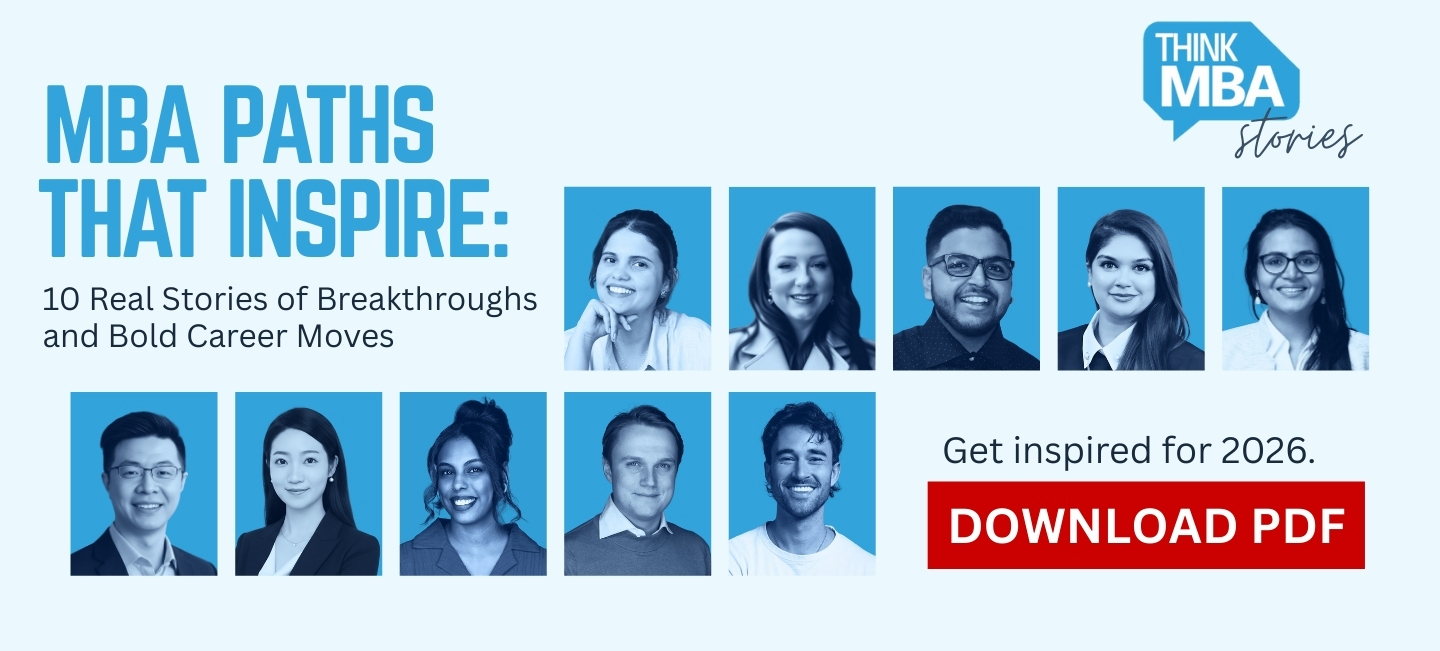Contact Us
[email protected]
Bridging East and West: Lim Tern Poh’s Dual MBA Journey into AI Leadership

Editor’s Note: In this edition of our Real Stories series, we spotlight Lim Tern Poh, a dual MBA graduate from the National University of Singapore (NUS) and Peking University (PKU). What makes Tern stand out is not only his deep passion for artificial intelligence, but also his rare ability to bridge Eastern and Western business practices—a skill that has enabled him to thrive at the intersection of technology, strategy, and cross-cultural innovation.
With an MBA in Strategy & Organization from NUS Business School and another in General Management from Guanghua School of Management, PKU, Tern has cultivated a unique multidisciplinary perspective that fuels his work as a visionary AI business strategist and entrepreneur. Today, he’s focused on connecting the dots across industries and geographies, helping global companies harness the power of AI to solve real-world problems.
For aspiring MBA students, Tern offers this advice: Build meaningful relationships, contribute beyond yourself, and stay resilient in the face of change. The business landscape is constantly shifting—your ability to pivot and adapt is what will ultimately define your success.
During his MBA, Tern balanced launching a startup with family responsibilities—a personal journey that taught him the value of flexibility and long-term perspective. “The role you expect may not exist when you graduate,” he notes. “But if you stay open and keep learning, the right opportunities will come.”
Before the PKU-NUS Dual MBAs
Before earning his dual MBAs, Tern was deeply immersed in the world of artificial intelligence. He served as the Associate Director at AI Singapore, a national program, and led AI product development at Yoozoo’s Global AI Innovation Lab.
“In these roles, I focused on turning complex business problems into practical AI solutions. I led teams of engineers and worked with senior leaders to set AI strategies. This work was built on a strong technical foundation, including my Master of Computing in AI from NUS. I was at the intersection of creating AI technology and making it work for businesses. I also spent a lot of time in the community, mentoring startups and helping shape AI governance standards.”
Why I Chose a Dual MBA in Asia
“My goal was to become a truly global leader, and I knew that required a deep understanding of both Eastern and Western business practices.” Tern’s journey began with a clear validation of that mission when he was awarded the ASEAN-China Young Leaders Scholarship—a prestigious full government scholarship to study at Peking University.
“This opportunity was the foundation for a transformative year in Beijing. It wasn’t just about classroom learning; it was about full immersion.“
This opportunity was the foundation for a transformative year in Beijing. It wasn’t just about classroom learning; it was about full immersion. “We studied case studies of Chinese giants, such as Pinduoduo, and analyzed how they challenged established players like Alibaba. I worked on a consulting project for a Chinese tech firm, leading a multicultural team to build their international market strategy.”
This experience taught him that business is not a one-size-fits-all model. “I learned new ways to network, build trust, and approach innovation. It gave me the ability to see a business challenge from multiple cultural angles and find common ground. Now, I can confidently act as a bridge, helping Western companies understand the Asian market and Asian companies expand globally.”
The most significant adjustment was transitioning from a transactional to a relationship-based approach to networking. In many Western cultures, one might connect with someone over a specific business need. In China, Tern learned that building genuine trust and friendship comes first. Business follows. This meant spending more time with classmates and contacts outside of formal settings, sharing meals, and getting to know them as individuals. Embracing this was key to his success.
Another adjustment was the speed and scale of innovation. The digital ecosystem in China, centered on platforms such as WeChat, is highly integrated. Everything happens on one app. “Seeing this level of ‘mobile-first’ thinking up close was eye-opening and taught me a lot about user-centric design and rapid experimentation.”
Navigating Cultural Differences in Business
Tern observes culture differences as less of a “gap” and more of a “difference in focus,” which creates huge opportunities for collaboration.
“The West, particularly the U.S., excels in conducting in-depth, foundational research and developing sophisticated enterprise AI solutions. There’s a strong emphasis on the underlying science and building platforms.
The East, especially China, is incredibly strong in application and integration. They have massive datasets and a vibrant mobile-first culture, which allows them to deploy and scale AI for consumer applications at a pace that is hard to match. Think about the integration of AI in e-commerce, logistics, and social media.
The bridge is built by people and companies that can operate in both worlds. We need leaders who understand the deep research from the West and can apply it to the fast-moving, large-scale markets in the East. Conversely, the lessons from China’s at-scale AI deployment can offer valuable insights to Western companies. My career is focused on being that bridge—connecting the best ideas and talent from both sides to drive global innovation.”
Mentoring start-ups – a twofold mission

For Tern Poh, mentoring is his way of giving back and staying at the cutting edge of innovation.
“I’ve worked with over 20 AI-first start-ups through programs at Google and 500 Global. I help founders refine their strategy, navigate technical challenges, and find their product-market fit. My role is to serve as a strategic sounding board, leveraging my experience in both building AI products and shaping business strategy.”
In China, this took on a new dimension. During his MBA, he led a consulting project for a Chinese software company called Segment Fault. Together with his team, they developed their go-to-market strategy for international expansion. This involved an in-depth exploration of the local tech ecosystem and understanding the unique challenges that Chinese start-ups face when expanding globally. It was a hands-on way to apply his East-West knowledge to create real value.
East vs. West in AI: What I’ve Learned
Tern Poh’s focus is on advising leaders on how to leverage AI to foster collaboration between East and West.
“First, I want to demystify AI for business leaders. Through my work at Deloitte, I help senior executives understand AI not just as a technology, but as a tool to improve their operations and create new value. I also plan to continue teaching and speaking, breaking down complex AI concepts into simple, actionable ideas.
Second, I am committed to fostering a global AI ecosystem. The future of AI will be shaped by collaboration across borders. By connecting innovators in Singapore, China, and the West, I hope to help create solutions to global challenges. Inspiring the next generation is a big part of this. By mentoring young founders and students, I aim to demonstrate that a career in AI can be both technically challenging and profoundly impactful.”
“It was a profound investment in the person you want to become, it was the pivot point that combined his AI expertise with global business strategy.”
Is an MBA worth it?
The right MBA is more valuable than ever, but its worth is not just about the qualification, but also about the soft skills that the candidate will develop throughout the program. The student will become resourceful in finding solutions and develop different perspectives on challenges and problems.
“First, Clarity. The world is complex, and an MBA gives you the frameworks to make sense of it. My dual degree provided me with clarity on how technology, business, and culture intersect on a global scale.
Second, Community. You are surrounded by brilliant, driven people, and a dual degree provides you access to a community with an unparalleled global reach. My NUS family is rich with perspectives from across the West and Southeast Asia. My Peking University family, in turn, introduced me to leaders from vibrant, fast-growing regions in Africa and Central Asia. The result is a global network of trusted friends I can call on whenever opportunities for collaboration arise. This diverse community becomes your lifelong support system and a launchpad for cross-border innovation.
Third, Transformation. An MBA is a unique chance to pause your career and intentionally redesign your future. I was fully committed to the experience and was honored to graduate as the Valedictorian and Mandarin Alumni Gold Medalist for my class at NUS. For Tern, it was a profound investment in the person you want to become, it was the pivot point that combined his AI expertise with global business strategy.”
Advice to newcomers
Like everything in life, you really need to invest your creativity and proactivity to truly make the most of your MBA experience. If you limit yourself to attending courses and passing exams, you will miss most of the crucial part of this unique experience. Networking is a must; you need to break your comfort zone and get out to meet people. This doesn’t always mean partying and explicitly socializing, but focusing on building an interactive network.
“Build Relationships, Not Just a Network. Go beyond collecting LinkedIn contacts. Invest time in knowing your classmates, professors, and alumni. Some of my most valuable insights came from informal chats with peers from different countries and industries. These genuine connections will support you for your entire career.
Step Outside Your Comfort Zone. An MBA is the perfect time to try something new. If you’re from a corporate background, join the entrepreneurship club or try a startup competition. I took modules in a healthcare innovation program, which led to a patent and a grant. This is your chance to explore and discover new passions.
Give Back to the Community. The more you give, the more you get. I ran AI workshops for my classmates and moderated panels with industry experts. Teaching others deepens your own understanding and builds your reputation as a leader. A strong community benefit everyone.”
The most tangible ROI is the growth of my personal brand and my voice as a thought leader.
Career Payoff: ROI and Transformation
The return was almost immediate, and it came in ways Tern didn’t fully expect. “The most tangible ROI is the growth of my personal brand and my voice as a thought leader.” For example, the unique East-West perspective he developed during his MBA led to him being interviewed by publications like ThinkChina to share his expert analysis on AI development in China.
Financially, I transitioned into an AI consulting role at Deloitte, which was a direct outcome of the skills and network I gained. But the true ROI is much broader. It’s the global network, the confidence to lead diverse teams, and a credible public voice. These have already paid for the investment many times over.”
“I remember my first networking event in Beijing. I was used to the Western approach of directly exchanging business cards and talking shop. But here, the focus was on building personal relationships over dinner and tea first. A friend gently pulled me aside and explained that in China, trust precedes business. That single piece of advice changed my entire approach.”
One of the most profound lessons came from building Tern’s network in Beijing. “I arrived with zero contacts on WeChat. A year later, I had over 500. This wasn’t just about adding numbers; it was about learning a new way to build relationships.” Tern admits that in China, trust is often built through shared experiences, not just formal meetings. Skiing on a frozen lake at Peking University or climbing the Great Wall with classmates becomes as important as any classroom discussion.
“One of the most unexpected experiences was collaborating on a MedTech device through the Duke-NUS Health Innovator Program. It showed me the incredible power of combining different fields to solve real-world problems. I worked with two clinicians to address low cervical cancer screening rates in Singapore, and together, we developed a new device and filed a provisional patent.”
The results came even before I graduated. That project secured a S$50K grant while I was still a student, and the experience helped me get accepted into the Antler incubator program, giving me a platform to build a new venture. The MBA was already opening doors.”
It’s the global network, the confidence to lead diverse teams, and a credible public voice—all of which have already paid for the investment many times over.
Lim Tern Poh’s journey is more than a success story; it’s a blueprint for the modern global leader. It shows that leadership now thrives at the intersection of technology and cultural fluency. His experience proves a dual MBA is not just about acquiring skills, but about building bridges between cultures, between innovation and market, and ultimately, between a present career and a future of lasting impact.





